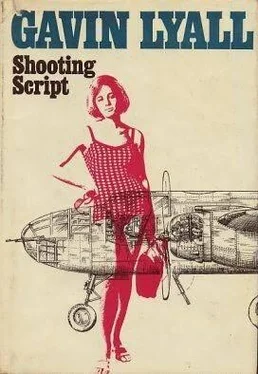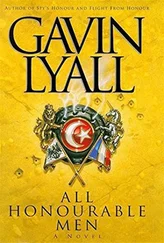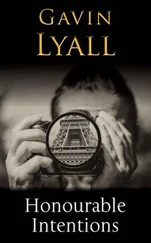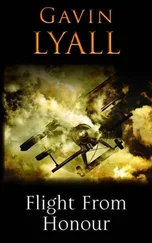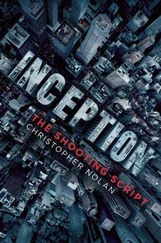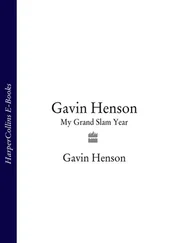Gavin Lyall - Shooting Script
Здесь есть возможность читать онлайн «Gavin Lyall - Shooting Script» весь текст электронной книги совершенно бесплатно (целиком полную версию без сокращений). В некоторых случаях можно слушать аудио, скачать через торрент в формате fb2 и присутствует краткое содержание. Жанр: Триллер, на английском языке. Описание произведения, (предисловие) а так же отзывы посетителей доступны на портале библиотеки ЛибКат.
- Название:Shooting Script
- Автор:
- Жанр:
- Год:неизвестен
- ISBN:нет данных
- Рейтинг книги:3 / 5. Голосов: 1
-
Избранное:Добавить в избранное
- Отзывы:
-
Ваша оценка:
- 60
- 1
- 2
- 3
- 4
- 5
Shooting Script: краткое содержание, описание и аннотация
Предлагаем к чтению аннотацию, описание, краткое содержание или предисловие (зависит от того, что написал сам автор книги «Shooting Script»). Если вы не нашли необходимую информацию о книге — напишите в комментариях, мы постараемся отыскать её.
Shooting Script — читать онлайн бесплатно полную книгу (весь текст) целиком
Ниже представлен текст книги, разбитый по страницам. Система сохранения места последней прочитанной страницы, позволяет с удобством читать онлайн бесплатно книгу «Shooting Script», без необходимости каждый раз заново искать на чём Вы остановились. Поставьте закладку, и сможете в любой момент перейти на страницу, на которой закончили чтение.
Интервал:
Закладка:
Still assuming it was a shotgun, of course.
I was getting tired, and he was still supposed to be the detective. 'I don't know.'
He smiled. Above us, in the control room, a loudspeaker echoed, and far off I heard the whistle of a Viscount on the approach. The ten-thirty from Miami.
The phone rang. The inspector snatched it up, grunted several times, put it down.
Then he stood up. 'Your witness is here, Mr Carr. Miss – ah – Penrose. And Mr Luiz Monterrey. I'll lead the way.'
We wound down the concrete stairs. J.B. and Luiz were waiting on the edge of the loading area, escorted by a small posse of uniformed police.
J.B. saw me and said immediately: 'If they're trying to involve you, Carr, you don't have to say a damn thing without a lawyer present. If you haven't got your own man, I probably know enough Jamaican law to help out.'
The inspector was staring at her as if she'd sprouted a forked tail and spat on Moriarty's Police Law into the bargain.
Before he could explode, I said: 'Skip that. Just tell the man where I was last night.'
'In Barranquilla,' she said crisply. 'If you don't like my word, you can check the hotel, the airport authorities, the guy we bought a plane off, and the charter pilot who flew us in. You want their names?'
'Later, perhaps later.' He cleared his throat, then turned to Luiz. 'And if you're Mr Monterrey, I believe you drove the dead man down last night?'
Luiz opened his mouth, but was drowned by the sound of the Viscount rolling up to the ramp behind him. When its engines died, he said: 'We came in by the back gate, past the flying club, at about seven. We had a drink in the terminal, then I left about half-past nine. I'd parked my car over there' – he nodded at the cargo pier – 'and he walked over with me, and said he'd wait a while. He still thought Señor Carrmight come in that night.'
'I see.' The inspector turned to me. 'Were you planning to come back last night?'
'If the plane had been in better shape, I might have. As it was…'
He nodded, then announced: 'I understand you all knew the dead man. So I will now ask you to make a formal identification. You may be called on to repeat diis at the coroner's inquest.'
Luiz and I started simultaneously to protest on J.B.'s behalf. But she cut us off: 'I've had dead clients before.'
The inspector marched us off across the bright cold concrete towards the group at the cargo shed.
When we were lined up outside the ambulance, the sergeant gave a couple of orders in the broad Jamaican he saved for talking to constables, and somebody opened the doors and put on the lights.
In turn, we stepped up inside, looked, stepped down. It was warm inside the ambulance and it smelt of something. When I got down, I could feel the cold sweat on my forehead.
The inspector said softly: 'I'd have thought you'd seen dead men before, Mr Carr – in Korea.'
'No. Pilots only kill them. You don't see them.'
He grunted, then raised his voice. 'Do you identify this man?'
J.B. said: 'That's the man I met as Diego Ingles.'
He frowned at her careful legal phrasing, then turned to me. I nodded. 'That's Ingles.'
Luiz said: 'Yes.'
A constable in a white motorcycle crash helmet handed over a bunch of papers. The inspector thumbed through them, picked out a small booklet. After a moment he said: 'I have a passport here, found on the dead man. The full name appears to be Diego Jiminez Ingles.'
I said: 'Say that again.'
He looked at me, surprised. 'Does this contradict anything you understood?'
Not now; not any longer. I should have remembered, of course; Spanish custom uses both father's and mother's family names – but it puts father first. The son of Juan Smith Jones is Roberto Smith Brown – it's the middle name that matters. I should have remembered.
'Jiminez,' I said slowly. 'Perhaps that changes your case for you a little, Inspector.'
'Ibeg your pardon?' He looked annoyed.
This was carrying Jamaican disinterest in the rest of the Caribbean a bit far.
'Jiminez, for Christ's sake. The rebel leader in the República Libra. Diego must have been his son.'
He glanced at the sergeant. 'You didn't hearthis-?'
Tveheard of the man Jiminez, sir,' the sergeant said – a little reluctantly. 'But I hadn't seen the passport, of course, sir.'
The inspector glared down at the passport as if it should have Son of well-known rebel leader stamped on it. 'This is a Venezuelan passport.'
I said: 'So his mother's family was Venezuelan. And probably loaded. That's maybe where Jiminez is getting his backing. And you let him in here, without noticing a thing.'
'I wasn't teaching him to fly,' he said stiffly.
Then I knew where all my troubles had come from. The FBI knew who Diego was, the Repúblicaknew. It just hadn'toccurred to them I could be stupid enough not to know. So I'd been written down as a rebel.
So I'd lost the Dove.
Then I remembered something else and swung round on J.B. 'You must have had his name on a contract. He was working for-'
'No. He wasn't on contract – Eady plan, you remember? He was strictly off the budget, just helping out for drinks and expenses.'
I frowned at her, at the ambulance, finally back at the inspector.
He said: 'How did you mean – this changes the case?'
'My God – I was teaching him to fly twins. He must have been planning to fly arms or something into the República-and they guessed it.'
He made a noise in his throat. 'So you think he was -assassinated?' he asked distastefully.
'Well, at least it's a thought.'
He did some deep detecting on the thought, then smiled. 'But that would mean sending in a… a murderer, probably by airline. Andthat would mean trying to carry a shotgun through the Customs. They couldn't-'
'Forgetabout shotguns. Haven't you ever heard of a snake pistol?'
He hadn't; not on an island where the mongoose is the problem.
I sighed. 'Just take an ordinary revolver – a thirty-eight or bigger – bore out the rifling, pull the bullets out of the cartridges. Put in a wad, fill them up with birdshot, seal them with wax or soap – and you've got a shotgun pistol. Spreads enough to kill a snake at twenty paces with a snap shot. And it'll kill men at short range – if you're the sort who couldn't hit a battalion of barn doors at ten feet.
'Andit'll fit in your pocketand it doesn't make any more noise than an ordinary thirty-eight. And the Republica's snake country.'
There was a long hush while everybody looked at me.
Then the inspector said: 'How do you happen to know this, Mr Carr?'
J.B. said quickly: 'You don't have to answer-'
'The hell with that. I converted my own revolver in Korea. I'm a lousy pistol shot; with a snake gun at least I could kill snakes.'
The inspector turned to the sergeant. 'You didn't happen to know about snake pistols, did you?'
The sergeant gave me a reproachful stare, then shook his head. 'No, sir,' he said sadly.
The inspector came back to me. 'Some people might think you withheld this significant information for a remarkable time.'
'Some people might think / was supposed to be the detective around here.'
His eyes glittered. 'You wouldn't happen to carry a snake pistol these days?'
Steam started to come out of J.B.'s ears. I just smiled sweetly.
Luiz said quickly: 'Inspector, my friend – let me make a small suggestion. Possibly you should not worry so much about Señor Carr, but go and ring one of your ministers and tell him that you have a murder which will, tomorrow, bring the Venezuelan consul, a rich family in Caracas, quite possibly the Repúblicaand most certainly some American newsmen from Miami – all asking awkward questions.'
The inspector stared. He hadn't thought about the international aspect of Diego's death – no local would. But no island is an island.
Читать дальшеИнтервал:
Закладка:
Похожие книги на «Shooting Script»
Представляем Вашему вниманию похожие книги на «Shooting Script» списком для выбора. Мы отобрали схожую по названию и смыслу литературу в надежде предоставить читателям больше вариантов отыскать новые, интересные, ещё непрочитанные произведения.
Обсуждение, отзывы о книге «Shooting Script» и просто собственные мнения читателей. Оставьте ваши комментарии, напишите, что Вы думаете о произведении, его смысле или главных героях. Укажите что конкретно понравилось, а что нет, и почему Вы так считаете.
